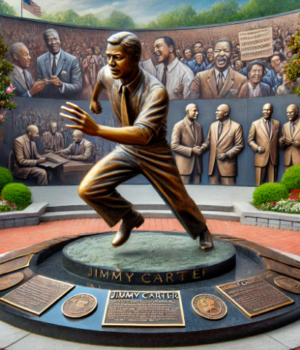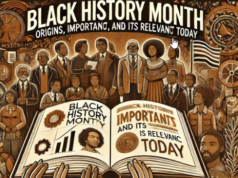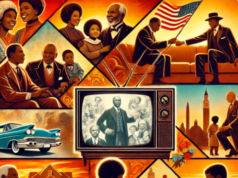Jimmy Carter’s Enduring Legacy with Black America and Civil Rights
Former President Jimmy Carter is widely regarded as a leader who brought compassion, integrity, and humanity to the White House. However, one of the lesser-discussed aspects of his presidency and post-presidency work is the profound connection he developed with Black America and his enduring legacy in advancing civil rights. Carter’s support for policies and initiatives that promoted racial equality and his close relationship with African American communities throughout his life truly set him apart as a champion of justice. Let’s explore how Carter carved out a lasting impact on civil rights and his enduring bond with Black America.
Jimmy Carter: A Southern Advocate for Civil Rights
Growing up in Plains, Georgia, during the Great Depression, Carter witnessed the deeply entrenched racism and segregation of the Jim Crow South. While many of his peers upheld the prevailing racial hierarchies of the time, Carter took a markedly different stance. His faith and moral convictions played a significant role in shaping his views on race. Carter’s dedication to fairness and equality would shape his advocacy for civil rights as a public servant.
Carter’s Leadership as Georgia Governor
In 1970, Jimmy Carter was inaugurated as the governor of Georgia. In his inaugural speech, Carter stunned many by boldly declaring:
“The time for racial discrimination is over.”
At a time when such statements were politically risky in the South, Carter’s words sent a clear message: he was committed to civil rights. During his tenure, Carter expanded opportunities for African Americans in government by appointing a record number of Black officials to statewide positions. He actively worked to desegregate schools and other public institutions, signaling his determination to break down racial barriers within his state.
Carter’s Presidency: Continuing the Fight for Equality
When Jimmy Carter became the 39th President of the United States in 1977, he carried his commitment to civil rights with him to Washington, D.C. His administration was notable for its efforts to address systemic inequalities, champion racial justice, and strengthen the relationship between the federal government and Black communities.
Appointments of African Americans to Key Roles
Carter’s presidency set a new precedent by appointing a significant number of African Americans to prominent positions in government. Some of these landmark appointments included:
- Andrew Young: Appointed as the U.S. Ambassador to the United Nations, Young became the first African American to serve in this role.
- Patricia Harris: Named Secretary of Housing and Urban Development, Harris was the first Black woman to hold a Cabinet position.
- Civil Rights Advocates in Leadership: The administration prominently included leaders who had been deeply embedded in the Civil Rights Movement.
These appointments sent a clear message that Carter valued diversity and believed in the importance of representation at the highest levels of government.
Advancing Voting Rights
Carter also took proactive steps to protect voting rights for African Americans. His administration actively supported the extension of the Voting Rights Act of 1965, which was set to expire in 1982. Carter viewed safeguarding equal access to the ballot box as fundamental to democracy and worked to ensure the federal government remained committed to this cause.
The Personal Connection: Carter’s Relationship with Black America
Beyond policy, Jimmy Carter’s deeply personal connection to Black America further defined his legacy. His upbringing in a rural, segregated community meant he bore witness to the injustices Black Americans faced daily. His childhood friendships with African American neighbors influenced his empathy and understanding of racial inequality, laying the foundation for his lifelong advocacy.
As president, Carter maintained open lines of communication with Black leaders and communities. He actively sought guidance from clergy, civil rights leaders, and activists. This relationship was not performative but rooted in genuine collaboration and mutual respect. Carter’s interactions with African American communities reflected his belief that a direct dialogue was essential to addressing systemic racism.
Faith and the Black Church
One significant aspect of Carter’s bond with Black America is his relationship with the African American church. As a devout Christian, Carter found shared values in the mission of the Black church to advocate for social justice and equality. He often worked closely with prominent African American faith leaders, such as Dr. Martin Luther King Jr.’s family and Rev. Jesse Jackson. His efforts to build bridges between government and the Black church contributed to his broader legacy of inclusivity.
Post-Presidency: A Lifetime of Advocacy
Jimmy Carter’s dedication to civil rights didn’t end when he left the Oval Office in 1981. In many ways, his post-presidency work amplified his impact. Through his foundation, The Carter Center, he continued to fight for human rights and racial justice both domestically and globally.
Championing Affordable Housing
One of Carter’s most well-known post-presidency efforts has been his partnership with Habitat for Humanity, an organization that builds affordable housing for low-income families. Carter has frequently rolled up his sleeves and picked up a hammer alongside volunteers, constructing homes for people in need, many of whom are African American families. His hands-on commitment to reducing poverty and ensuring equitable housing access has endeared him to communities of color across the nation.
Voter Rights Advocacy
Long after leaving office, Carter continued to emphasize the importance of voting rights. At a time when voter suppression tactics disproportionately affected Black voters, Carter spoke out against inequality and worked tirelessly to promote fair elections. His efforts reinforced his lifelong message that democracy must strive toward inclusivity and fairness.
A Lasting Legacy
Jimmy Carter will always be remembered as a president and global humanitarian who strived to create a more just and equitable society. His enduring connection to Black America is a testament to his unwavering commitment to civil rights and his determination to address systemic racism at every level. From his early days in Georgia to his time in the White House and throughout his post-presidential life, Carter demonstrated that leadership rooted in compassion and equality can create tangible, lasting change.
As we reflect on Carter’s legacy, it’s clear that his work has left an indelible mark on the fight for racial justice, making him one of the most consequential allies of Black America in modern history. His example serves as a reminder that the fight for equality requires both bold action and genuine empathy—and that progress is possible when leaders choose to stand on the side of justice.
Conclusion
Jimmy Carter’s relationship with Black America is a cornerstone of his legacy. Through his policies, leadership, and personal connections, he championed civil rights in ways few others have. In remembering his contributions, we honor a legacy deeply interwoven with the ongoing struggle for racial equality. Carter’s work continues to inspire new generations to push forward in the pursuit of a more equitable and compassionate society.
“`








